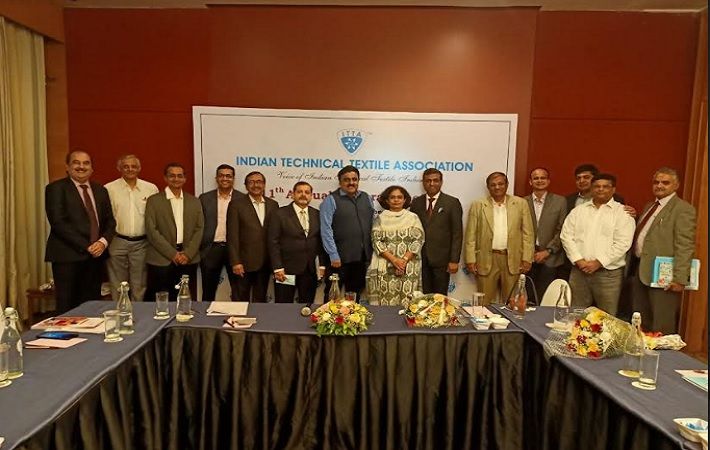
“This year, we have conducted our AGM in a hybrid format because of the COVID pandemic situation with restrictions in the number of attendees,” Dr Anup Rakshit, executive director, ITTA, said while welcoming the attendees.
Further, Rakshit added that in the coming years, the technical textiles industry will boost and show high growth as there are no. of major govt. schemes on technical textiles announced by the ministry of textiles. He also informed that rationalisation of Harmonised System of Nomenclature (HSN) codes for the technical textiles sector is continuing. In addition to the 207 HSN Codes notified in 2019, another few hundred are in the offing and will soon be released.
In his presidential address, Dr Sundararaman thanked the ministry of textiles for their tremendous support and encouragement. He emphasised that the technical textiles industry should take advantage of the shifting of supply chains from China to gain a bigger footprint in the global arena. He informed that the success of personal protection equipment (PPE) clothing and garment industry, which highlighted the role of technical textiles industry to the government and public at large during the covid period, continues unrelenting, as said in the press release.
Dr Sundararaman also pointed out that ITTA had made representations to government and persuading them to bring technical textile made-ups into the general ambit of made-ups in order to get the Rebate of State and Central Taxes and Levies (RoSCTL) advantages as well as to get more favourable Remission of Duties or Taxes on Export Products (RoDTEP) rates and other incentives. He also highlighted that ITTA has entered into an MoU with the International Finance Corporation (IFC) to bring in international experts to guide Indian companies to reach global standards. He informed that the ITTA is also working closely with the BIS for the formulation of Indian standards on technical textiles.
At the AGM, special guest Pooja Kulkarni, IAS, shared the working and growth of technical textiles in Tamil Nadu. She highlighted the Tamil Nadu economy by mentioning the GDP, contribution of manufacturing and services, exports, industrial output, etc. She also pointed out that Tamil Nadu technical textile ecosystem covers agrotextiles, industrial textiles and medical textiles and the upcoming technical textile parks in Karur and Virudhunagar, SIDCO-JICA Kanchipuram and SIDCO-JICA Karur.
Fibre2Fashion News Desk (RR)

